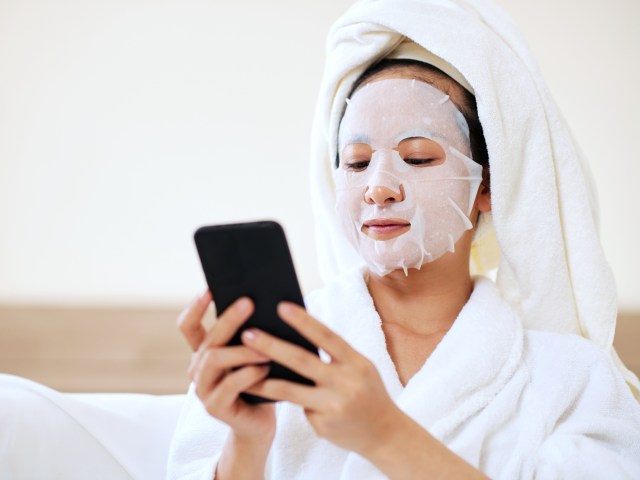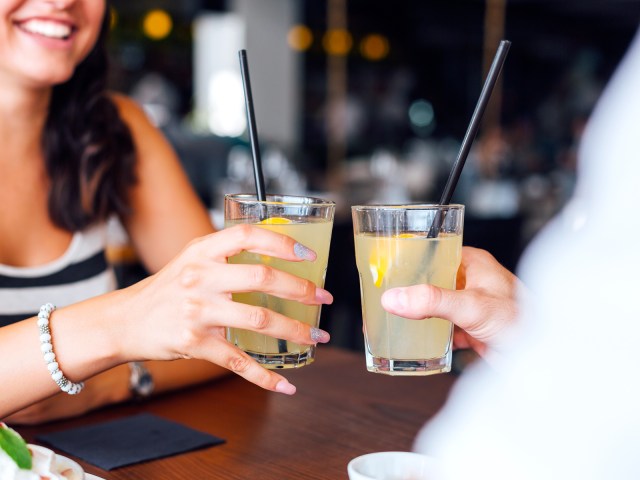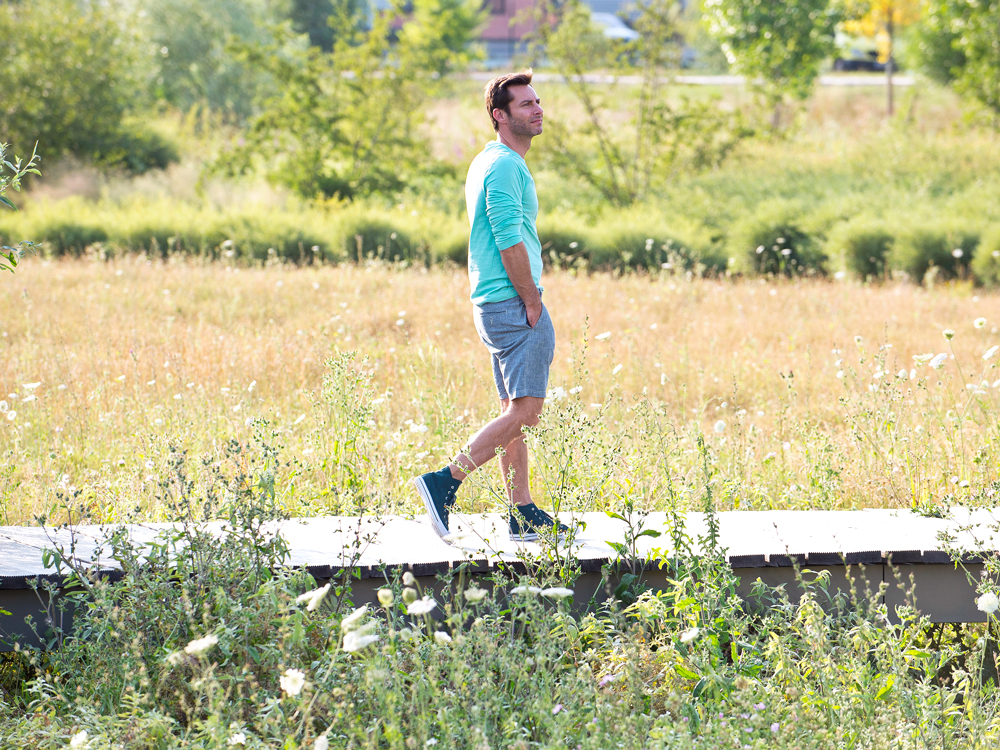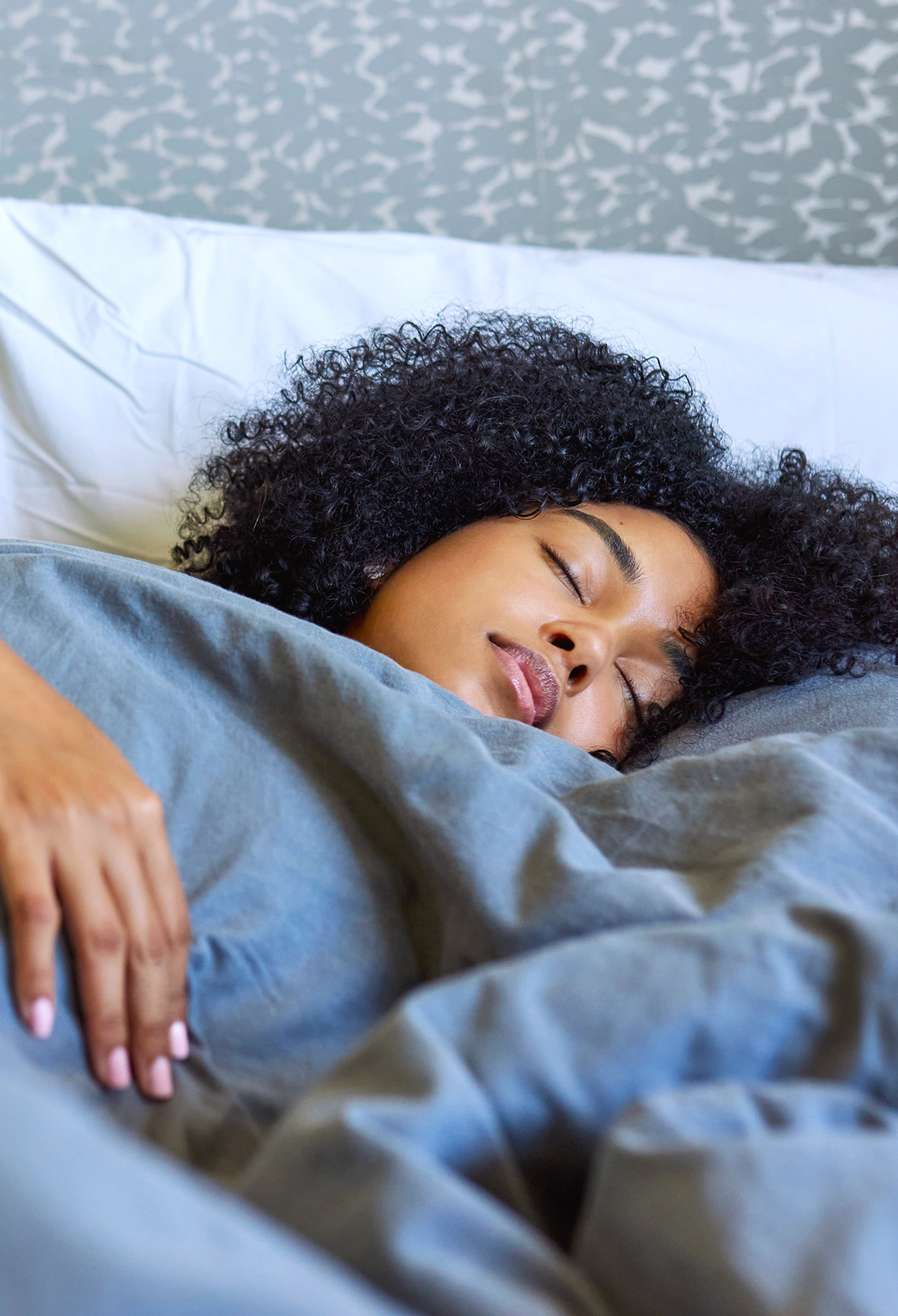Why do long-haul flights leave us looking forward to a nap immediately upon disembarking? This uncomfortable feeling comes from the downsides of traveling, from missed sleep while switching time zones to enduring cramped seating and dry cabin air. While the drawbacks of flying are worth the reward, it’s important to take care of yourself after a flight. With the help of health experts, we’ve gathered five of the most important postflight self-care rituals.
Rejuvenate Your Skin

We all want to look and feel our best during vacation, but airplanes can leave our skin dull and dry. This isn’t just a perception — it’s backed by science. As board-certified dermatologist Dr. Marisa Garshick explained to L’Oréal, the low humidity in planes is very drying, “which is why skin tends to look worse after travel.” Dr. Garshick recommends using a face mist immediately after your flight. Not only does the cool mist feel refreshing, but ingredients such as hyaluronic acid and glycerin can also counteract water loss.
Dr. Garshick further recommends wearing a postflight face mask. If you don’t want to walk around the airport in one, apply it as soon as you get to your hotel. Sheet masks are most convenient for travel because they’re small and not messy to pack. Pro tip: Always give new skin care products a trial run before a vacation to avoid unwanted reactions.
Finally, if you’ve just debarked from a sleepless red-eye flight, your under-eye area might seem a little puffier than usual. Dr. Garshick recommends using an under-eye serum that contains caffeine, which can soothe and smooth the area. Other methods to calm facial inflammation include using a cool compress, metal face roller, or gua sha tool.
Skip the Fast Food

“Sleep deprivation actually messes with feelings of hunger,” says cardiovascular surgeon Dr. David Greuner, who warns travelers to be mindful of the foods they eat after deplaning. Jet lag can make you feel hungrier than usual, but that doesn’t mean you should head for the nearest fast-food joint after collecting your luggage.
Choosing the right foods after landing can significantly impact postflight energy levels. Fruits and vegetables, which are packed with antioxidants and high water content, can help you rehydrate and feel refreshed. Light, protein-rich foods such as mixed nuts or yogurt can provide a quick energy boost. On the other hand, sugary, processed foods including sodas, fast food, candies, and sweets may fill you up initially but can leave you feeling sluggish, exacerbating the jet lag.
Banish the Booze

With the increased risk of dehydration and inconvenient bathroom breaks, overdoing it on boozy beverages during a flight can hinder our travel experience. However, some experts also recommend avoiding alcohol after your flight — at least during the first night. “Alcohol will also interrupt your sleep and could make jet lag worse,” registered dietitian Stacie Haaga explains. “Avoid anything you know causes you gastric distress or makes you feel bad,” she adds. Instead, enjoy a mocktail when you land and save alcoholic drinks for the next day — after your body has had time to rest and recoup some of its lost water content.
Go on a Nature Walk

After being cooped up in a mega-sized metal tube for five, eight, or even 18 hours — if you’re flying on the world’s longest commercial flight route from New York City to Singapore — you’ll likely need some stretching and fresh air. While this isn’t always possible, try to find a nice park, beach, or green space after check-in. Not only can the fresh air wake you up and help fight off jet lag, but walking outside also has many proven health benefits. Being outdoors can help calm you down by lowering your heart rate and blood pressure if you’re an anxious flyer. Walking also releases endorphins that can significantly improve your mood.
Even if you enjoy flying, you probably feel stiff from the crowded seating on most flights. The primary muscles used in walking include the quadriceps, hamstrings, calf muscles, and hip adductors (along with the support of the gluteal and abdominal muscles). These are also the muscle groups that can get most cramped in the seating position on an airplane, so working them out right after the flight is a great way to feel better faster. If walking outside isn’t possible, head for your hotel gym.
Catch Some Z’s

Getting enough sleep is crucial to keeping your body running at optimal levels, and this is especially important during vacation, when we want to feel our best. Sleep might be tricky if you’re dealing with time zone changes, but strive to get the doctor-recommended seven hours per night. If you have trouble falling asleep during vacation, try to mimic your at-home nightly routine. Take a bath or a hot shower, meditate, read a book, or listen to relaxing music. Whatever prepares you for bed at home can help you unwind and fall asleep faster while away.
If sticking to your routine still doesn’t do the trick, the doctors at Johns Hopkins University recommend a low dose of nonprescription melatonin. Your body naturally produces melatonin around two hours before bedtime to prepare your body to rest, but sometimes (especially if your circadian rhythm is thrown off), your body needs a little boost to get things rolling. Taking melatonin before bedtime can help you fall asleep faster and leave you feeling more refreshed to start enjoying your vacation.
Note: All featured products and deals are selected independently and objectively by the author. Daily Passport may receive a share of sales via affiliate links in content.
More from our network
Daily Passport is part of Inbox Studio, an email-first media company. *Indicates a third-party property.
















